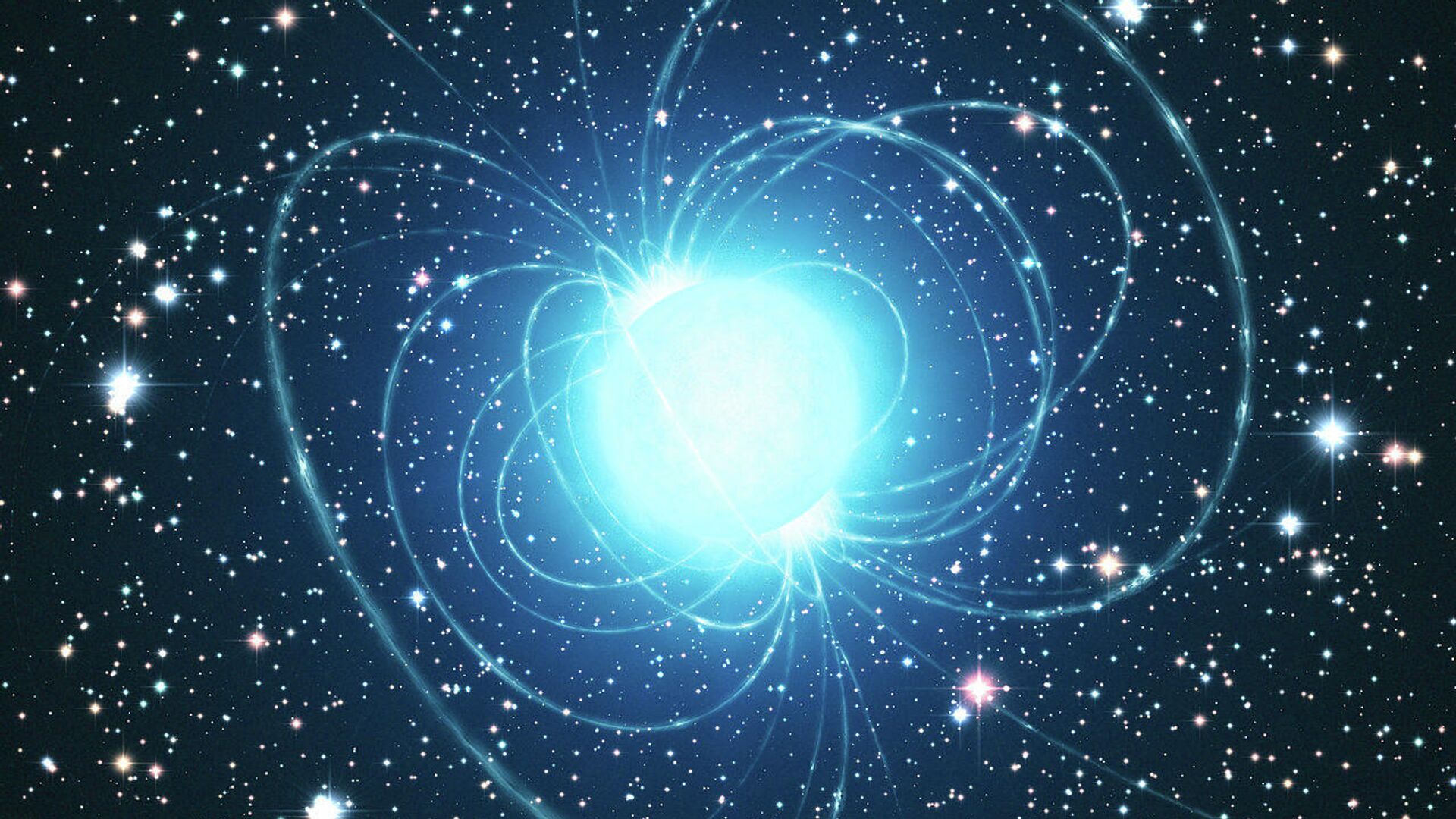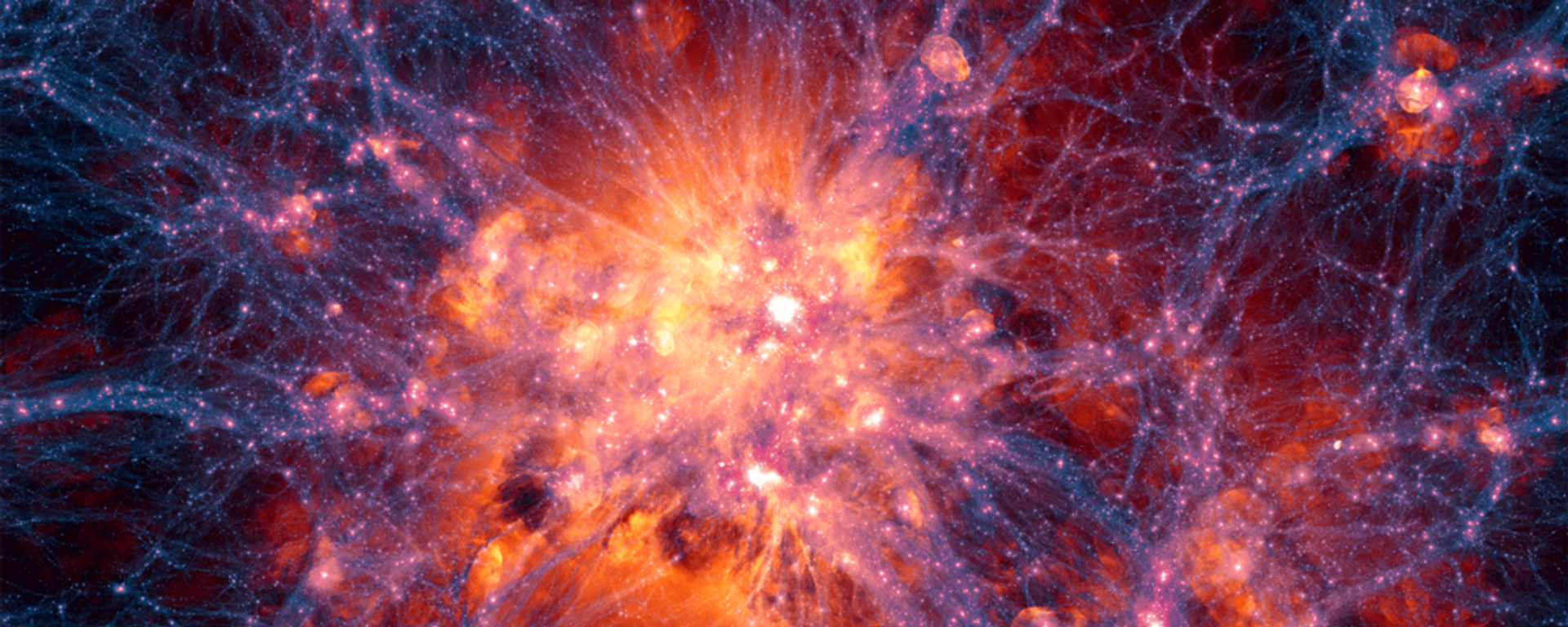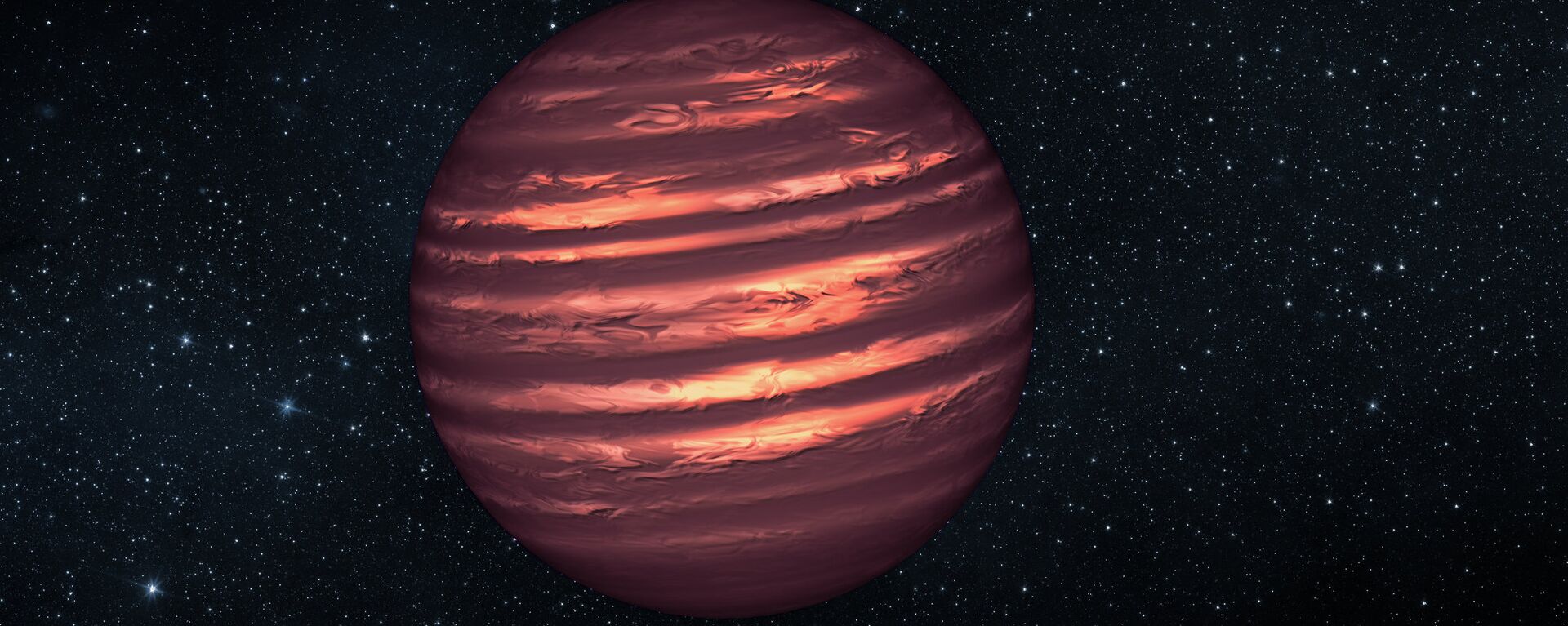https://sputnikglobe.com/20230721/astronomers-discover-potential-new-type-of-star-emitting-powerful-intermittent-radio-bursts-1112050753.html
Astronomers Discover Potential New Type of Star Emitting Powerful Intermittent Radio Bursts
Astronomers Discover Potential New Type of Star Emitting Powerful Intermittent Radio Bursts
Sputnik International
The science team suspects the stellar object might be a new type of magnetar, but its characteristics defy the most basic understanding of how that type of neutron star operates.
2023-07-21T18:57+0000
2023-07-21T18:57+0000
2023-07-21T18:57+0000
beyond politics
neutron star
radio waves
astronomy
star
science & tech
https://cdn1.img.sputnikglobe.com/img/07e6/01/1b/1092554940_0:93:1281:813_1920x0_80_0_0_a3142a3971564a05035ddea2bfa69dae.jpg
Some 15,000 light-years from Earth sits an object named GPM J1839−10 which does something no other stellar object has ever been seen doing: it releases huge bursts of radio waves up to five minutes long, then goes silent for 22 minutes.The object was first spotted by researchers in Western Australia, who were hunting for a second example of a mysterious object spotted by Tyrone O’Doherty, a doctoral student at Curtin University in Perth, in 2018. O’Doherty’s object released huge bursts of radio waves every 18 minutes, with each burst lasting about one minute each.The object doesn’t fit any known classification of stellar object, although it has properties similar to magnetars, a type of neutron star with a highly energetic magnetic field. Magnetars and their cousins, pulsars, emit electromagnetic radiation such as radio waves in regular bursts, according to how fast they spin, but the frequency of those bursts is 12 seconds at the longest and typically less than 1 second - the period on these two objects were 18 minutes and 22 minutes, respectively. Further, their bursts last for one to several minutes at a time - well beyond the duration of known magnetar or pulsar activity.The reason it isn’t simply classified as another type of magnetar is that known magnetar properties dictate that they can only generate radio wave bursts by orbiting above a certain speed known colloquially as the “death line.”“The object we’ve discovered is spinning way too slowly to produce radio waves - it’s below the death line,” Hurley-Walker said.Hurley Walker’s team also looked at past data and found something remarkable: the object had actually been appearing in telescope images for more than 30 years."It showed up in observations by the Giant Metrewave Radio Telescope (GMRT) in India, and the Very Large Array (VLA) in the USA had observations dating as far back as 1988," she said.
https://sputnikglobe.com/20230718/three-potential-dark-stars-powered-by-dark-matter-spotted-using-webb-telescope-1111975934.html
https://sputnikglobe.com/20230714/astronomers-find-rare-failed-star-mysteriously-blasting-out-radio-emissions-1111880862.html
Sputnik International
feedback@sputniknews.com
+74956456601
MIA „Rosiya Segodnya“
2023
News
en_EN
Sputnik International
feedback@sputniknews.com
+74956456601
MIA „Rosiya Segodnya“
Sputnik International
feedback@sputniknews.com
+74956456601
MIA „Rosiya Segodnya“
magnetar; star; radio waves; western australia; astronomy
magnetar; star; radio waves; western australia; astronomy
Astronomers Discover Potential New Type of Star Emitting Powerful Intermittent Radio Bursts
The science team suspects the stellar object might be a new type of magnetar, but its characteristics defy the most basic understanding of how that type of neutron star operates.
Some 15,000 light-years from Earth sits an object named GPM J1839−10 which does something no other stellar object has ever been seen doing: it releases huge bursts of radio waves up to five minutes long, then goes silent for 22 minutes.
The object was first spotted by researchers in Western Australia, who were hunting for a second example of a mysterious object spotted by Tyrone O’Doherty, a doctoral student at Curtin University in Perth, in 2018. O’Doherty’s object released huge bursts of radio waves every 18 minutes, with each burst lasting about one minute each.
Using the Murchison Widefield Array, a radio telescope in Western Australia, the scientists spotted a second similar object, which they dubbed GPM J1839−10. Their findings were detailed in an article published in Nature on Wednesday.
The object doesn’t fit any known classification of stellar object, although it has properties similar to magnetars, a type of neutron star with a highly energetic magnetic field. Magnetars and their cousins, pulsars, emit electromagnetic radiation such as radio waves in regular bursts, according to how fast they spin, but the frequency of those bursts is 12 seconds at the longest and typically less than 1 second - the period on these two objects were 18 minutes and 22 minutes, respectively. Further, their bursts last for one to several minutes at a time - well beyond the duration of known magnetar or pulsar activity.
“This remarkable object challenges our understanding of neutron stars and magnetars, which are some of the most exotic and extreme objects in the Universe,” said Hurley-Walker, the lead author of the report.
The reason it isn’t simply classified as another type of magnetar is that known magnetar properties dictate that they can only generate radio wave bursts by orbiting above a certain speed known colloquially as the “death line.”
“The object we’ve discovered is spinning way too slowly to produce radio waves - it’s below the death line,” Hurley-Walker said.
“Assuming it’s a magnetar, it shouldn’t be possible for this object to produce radio waves. But we’re seeing them. And we’re not just talking about a little blip of radio emission. Every 22 minutes, it emits a five-minute pulse of radio wavelength energy, and it’s been doing that for at least 33 years. Whatever mechanism is behind this is extraordinary.”
Hurley Walker’s team also looked at past data and found something remarkable: the object had actually been appearing in telescope images for more than 30 years.
"It showed up in observations by the Giant Metrewave Radio Telescope (GMRT) in India, and the Very Large Array (VLA) in the USA had observations dating as far back as 1988," she said.
"That was quite an incredible moment for me. I was five years old when our telescopes first recorded pulses from this object, but no one noticed it, and it stayed hidden in the data for 33 years. They missed it because they hadn't expected to find anything like it."






